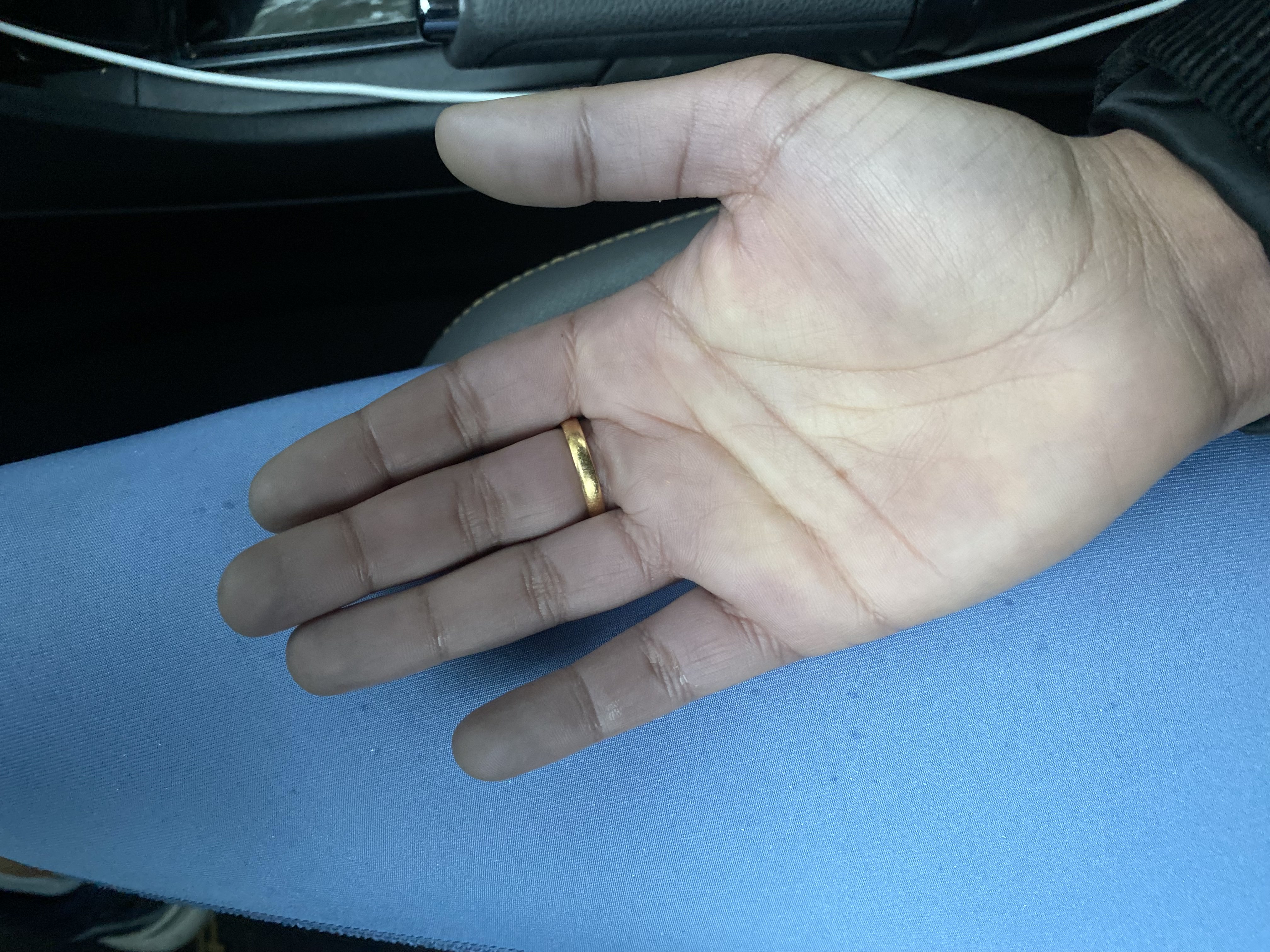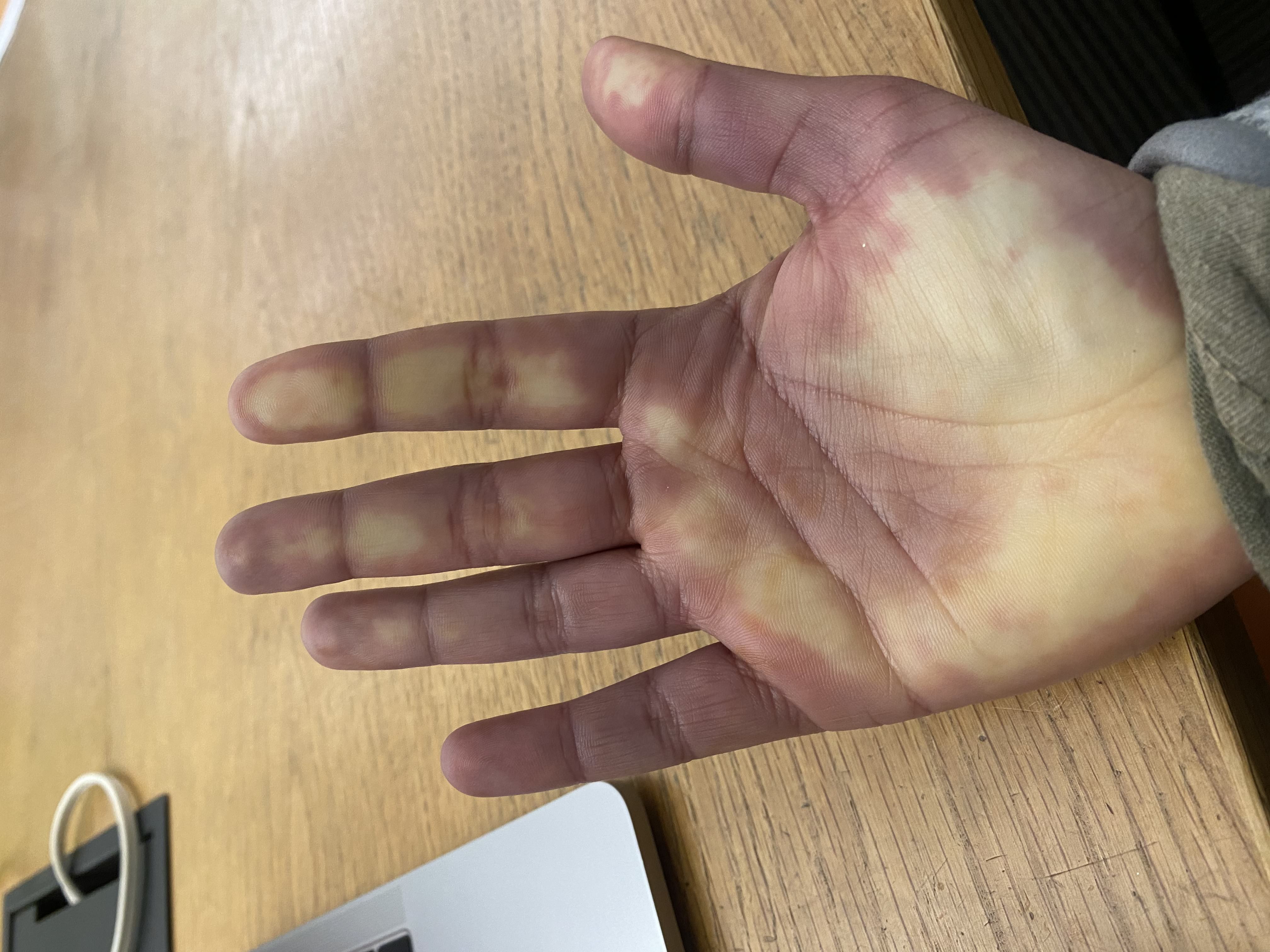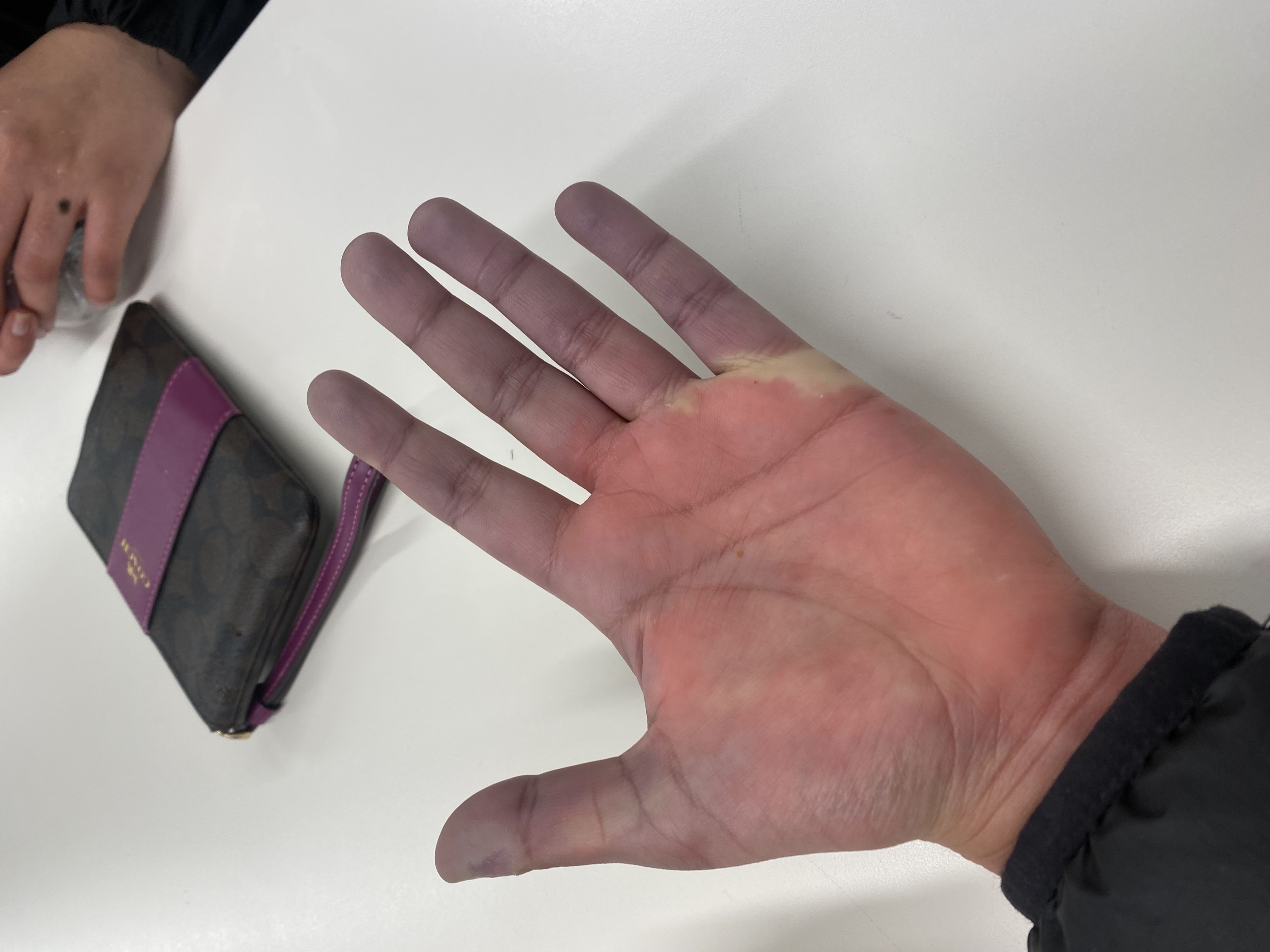No stupid questions
1/6/25
Happy new year. I'm still in holiday mode so I've been using my brain in spurts.
These are those spurts.
What’s Raynaud's phenomenon?
I have a wonderful condition called Raynaud's phenomenon, which means my hands
go blue in cold weather. Or when I hold something cold. Or when I wash
my hands in cold water. So I run in
the warm parts of the year and lift in the cold. The problem is that I impulsively signed up for
two half marathons this year and the first one is in February.
Raynaud’s is named after French medical student Maurice Raynaud who described it
in 1862.
When we’re cold, our bodies redirect the blood from our fingers and toes to
important organs. Raynauds is an exaggerated response. If normal finger blood
vessels constrict a little, mine clamp down and stop blood flow in what’s called a
vasospastic attack.
Some of the causes are using a jackhammer, an autoimmune disease, or my
favorite, being assigned female at birth. To side track, women are
generally
colder
than men because they have less muscle mass and thus a lower metabolic rate.
Treatments are staying warm.



How does the gas nozzle know when to stop?
I was at a Costco gas station when I wondered about this. It's straightforward. Imagine putting your finger on the other end of a straw. It loses air and clamps shut. This is similar. The gas nozzle has a small pipe next to it called a venturi. When the end of the venturi touches the liquid gas, it chokes off the air pressure that keeps the handle open and shuts off gas flow.
How did MRI scans get faster?
I went to a Bengali holiday party and met a statistics PhD student from Stanford who explained compressed sensing to me in a corner. We started with MRI scans. The MRI scans used to detect tumors in toddlers took 45 minutes, which is too long for a toddler to stay still. So researchers needed to find a way to speed up the process. Instead of looking for the tumor by going pixel by pixel or using any other deterministic method, they found that randomly sampling the image was the fastest solution. Through some fancy math they can also find the minimum number of pixels or lines to randomly sample to definitively find (or not find) a tumor. The point is that random sampling is the best. But a lot of people, maybe myself included, don't truly understand what randomness is.
Why do we like sugar so much?
When I’m in California, my mom and I somehow end up at Starter Bakery every week. It started when I got her an olive bread loaf, which she said was the best bread she's ever had. Yesterday we went when everything was sold out and she picked a passionfruit madeleine and a Kouign Amann (pronounced Queen Amaan). I hadn’t eaten lunch so I gave in to the passionfruit madeline. And oh my god. Insanity. Which got me thinking about sugar.
The evolutionary reason why humans are so attracted to sugar is because fruits were less accessible than vegetables way back when. They were up on trees while vegetables were on the ground. And since they provided so much energy, whoever could get them were at an evolutionary advantage. The problem is that sugar is available everywhere now, but our attraction to it still exists, so we overconsume it. To get a bit philosophical, we value what is scarce. If I ate the passionfruit madeleine everyday, I’d hate it by the end of the week. But the fact that I ate it once and most likely won’t for a while makes it memorable.
Which brings me to the holidays. Back in suburban California, life isn’t as run-run-run as it is in New York. It’s slow. The people are familiar. I spent so many years wanting to leave this place for something greener. Turns out nowhere’s greener. I went on a walk this morning in the neighborhood - 57 degrees, a little foggy, chilly for California - and realized this is it. There’s nothing anywhere else that could be better right now. I mean, maybe there could be. Maybe I could be in Paris! Or maybe I’ve fled home enough to learn that better things don’t exist elsewhere. I’ll be at sea everywhere. Looking for a corner everywhere. So might as well enjoy the sea.
How do you write well?
This is from William Zinsser's On Writing Well. Try to get your point across in as little words as possible. Read good writing. Rewrite. Then rewrite again. Don't use adverbs that mean the same thing as the noun after them, i.e. don't say you quickly ran. You ran. Or she loudly screamed. She screamed. Look for the fluff you use. He didn't "help out," he "helped." Instead of “at the present time we are experiencing precipitation,” say “it’s raining.”
In action:
picked up much more speed
picked up
picked up
The task of good writing is to get the reader to the next sentence. Make sure each sentence is playing a role. Be yourself when you write. "Never say anything in writing you wouldn’t comfortably say in conversation.” The only way to learn to write is to force yourself to produce a certain number of words on a regular basis.
That being said, I hope to write consistently this year. Cheers.

